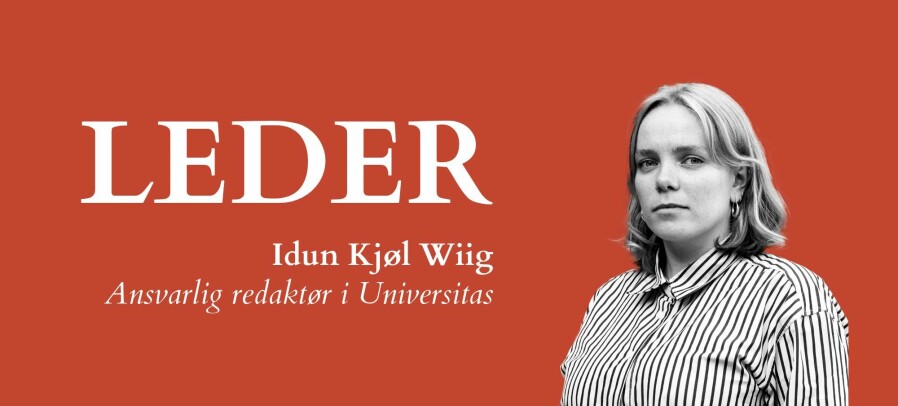#StudentLife

What Doesn’t Kill You Makes You Stronger
Navigating life as a newly arrived international student in Oslo
In the summer of 2024, approximately 23 000 international students arrived in Norway, and a large proportion of them traditionally settled in Oslo. Considering the bureaucratic maze, the jungle of the house market, and pricey tuition fees, I wonder if some of them are thinking “Why the hell did I do that?”
ID-Number day and night dream
Have you ever dreamt of having a Norwegian ID-Number and woke up realizing it was just a dream? You are not alone.
International students staying in Norway for more than 6 months have to report their move to local authorities in order to become residents and to be able to work and access public services. How exactly you report this depends on one’s nationality — whether you come from a country in the Schengen zone or not.
For students from outside the EU, the procedure starts as soon as they find out that they have been admitted to a study program in Norway. They have to apply for a residence permit requiring proof of admission to a recognized educational institution, sufficient financial means, and health insurance. In most cases, the permit will be granted before the move to Norway. Once the student lands, they need to register with the Police to get a d-nummer or fødselsnummer (depending on how long they intend to stay in Norway) and be able to access public services and work.
For students who are citizens of EU or EEA countries, the procedure is slightly easier. They are free to move to Norway any time and register their move to both the Police and the Tax Office within three months upon arrival. At least theoretically.
Practically, Norwegian bureaucracy is labyrinthic, and many students get lost in it. Inaccessible queues, confusing information, and fragmentation make the move to Norway way more stressful than it should be.
This year, given a limited capacity for appointments at the Police, it’s becoming very difficult for EU students to register. Available spots for scheduling a mandatory appointment at their office seem to be rarer than a Willy Wonka ticket.
A newly arrived MA student at UiO is sharing their experience with scheduling an appointment:
— I’d gotten into a routine of waking up every morning and, while sipping my coffee, checking UDI’s website in the hope that new appointments had opened. After three months since my arrival, on one sleepy Tuesday morning, my eyes got wide open with surprise: there was a spot free! I did not even check my agenda and booked it straight away. The morning after I was just about to open my laptop to check the website, but I suddenly remembered that I’d finally accomplished my mission and could, for the first time in a long while, enjoy my morning coffee.
Few appointment spots for international students has apparently been the case for the Police in Oslo for a while. At least back in 2022–2023, it was still dealing with the backlog of applications submitted during COVID and, with the crisis in Ukraine and Gaza, their workload has also increased immensely.
Home sweet home! (Where are you?)
There is no better feeling than going home, curling up in a ball, and chilling after a long day of study or work, submerged by readings, papers, books, and responsibilities. But, again, for some this feels like a mirage!
SiO, the student welfare association, offers many spots in student dormitories at fair prices, ranging from nearly 5 000 NOK for a single room at Sogn to around 7 000 NOK for a single room at Pilsestredet, in the heart of the city (in the fall 2024).
However, demand often exceeds supply, prompting many to explore private rental options. Neighborhoods like Grünerløkka and Bislett are popular for their lively atmospheres and proximity to campus, but prices can be steep. In Oslo, on average, rent is 3 600 NOK per square meter.
Mitra Fagerli Rahman and Hans-Markus Jensvold Kverneng from the Velferdstinget explain:
— SiO does not have an agreement with all the universities in Oslo, leaving students belonging to universities not affiliated with it having to turn to the private market, which is definitely not friendly to a student-budget.
In fact, SiO has 27 universities and schools in Oslo affiliated with it. Although the association is willing to open up to as many institutions as possible, it is up to every single school to apply in order to become members.
Some international students, according to the agreements between their university and SiO, are granted prioritized access to these dormitories, provided that they apply within the right deadlines. However, it is also up to each affiliated institution to decide whether or not to open a prioritized queue for international students, as, for example, it is the case with UiO.
Securing student housing for yourself is not always the end of the road to finally having a home in Oslo. In many cases, international students move into the new apartment only to find an unfurnished room! This makes the arrival in the city a bit … empty.
I landed myself in Oslo on a late evening in August and, after an exhausting trip, arrived at my sad, white, 14m² room, looking forward to spending my first night in a new country on the floor. But a gift from heaven was bestowed upon me! Somebody who had just moved out left their couch in the hallway, so I created a makeshift bed with two big cushions.
Then for days I tried to get a hold of a used mattress on Finn.no, but nobody replied to me! Only later, once I met my classmates going through the same odyssey, that since I did not have a Norwegian phone number, my profile could not be verified. So my messages to sellers ended up directly in their spam. Out of frustration, after six nights of camping in my own room, I ordered a bed from Secundo.no, and the day it arrived felt like Christmas!
From Free to Fee
Norway is one of the few countries in the world where education is seen as a concrete right, and not as a privilege. High tuition fees in other countries are a barrier and talent gatekeeper that too often favors those who already have opportunities.
Nevertheless, the introduction of tuition fees for students from outside the EU in 2023 is a worrying backlash that has been and still is staunchly opposed by many, both in the university realm and in the civil society.
Mitra and Hans-Markus from the Velferdstinget say:
— This policy is detrimental to the creation of a rich student body and environment, in which international students can input diversity. We definitely do not support this move by our government.
Of course this surprising shift from the gratisprinsippet, or the free principle, did not happen in a vacuum. It was motivated by budget constraints and the impact of international dynamics, as former Inter Universitas journalist Salome Chalandri explained in 2023. Indeed, the attempt to shift from fossil fuels and nuclear energy to more sustainable and renewable sources, combined with a fickle economy shaken by global dynamics, forced the government to review the state budget and reallocate resources to ensure more stability.
Still, as the Norsk Studentorganisasjon argues:
— Increased internationalization is necessary to answer the global questions of tomorrow, as it facilitates knowledge sharing, collaboration, and cooperation across countries and institutions.
That’s Why I Do That!
Being away from home, alone, in a new, unknown context, and having to navigate all these challenges is a frustrating and scary experience.
But no experience is perfect, and as the saying goes, no pain no gain! Stepping out of your comfort zone and making your way alone out in the world is a unique journey that gifts you with encounters you’d never believed to happen and toughens you up in ways you’d never imagined before. This gain is priceless, and it is a treasure that will accompany you forever.
So when the question “Why the hell did I do that?” hits, answer “That’s why I do that!” back.
































